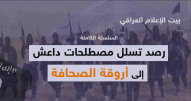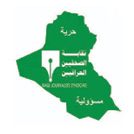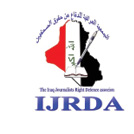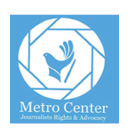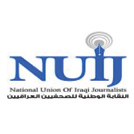Displacement of Anbar: priority for doubts
الصفحة الرئيسية > تقارير الرصد الإعلامي > Displacement of Anbar: priority for...
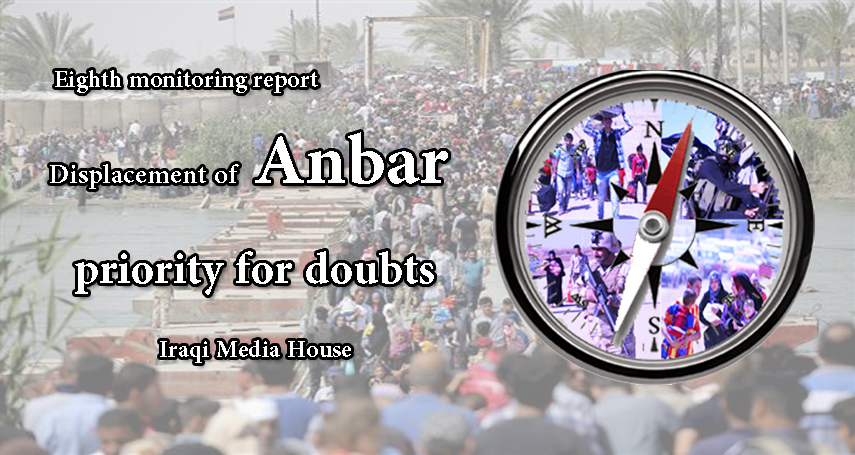
Eighth monitoring report
Displacement of Anbar: priority for doubts
Iraqi media coverage focused on the riskiness of displaced, and neglected their humanitarian conditions.
Continues clashes between Iraqi forces and ISIS militants in Anbar province western Baghdad forced thousands of families to flee toward the capital and other safe areas, since mid-April 2015;
The displacement process paid the Iraqi media attention since its start;
The way of dealing with the news related to that event varied between the reasons behind it, and the humanitarian conditions of displaced people, as well as the risk levels that host cities might encounter.
Iraqi media house observers have monitored media coverage according to the above axes, and reached to the following results:
Numbers of IDPs
1: IMH noted the uncertainty of the number of IDPs, as the majority of media did not focus on this point, merely the estimates were dominating the local media, and press coverage, such as the terms ''hundreds and thousands'' of displaced people, which is defined as correct but not accurate in journalistic standards, and that is considered as weakness in press that often avoids searching for details and merely refers to it, and focuses on reactions;
Therefore there was an absence of statistics, huge amount of opinions, on the account of data.
The majority of media haven't focused on backgrounds and clarifications of reports and news published about the displacement process from Anbar to Baghdad, and did not explain causes of the event, how it took place, which route had been taken by displaced people, and which areas they have fled from.
Numbers of displaced were conflicted through local media coverage that have dealt with numbers and did not base on relevant sources but non-specialist officials;
Al-Mada newspaper has published a report on the 19th of April saying that numbers of displaced people has reached 150 000, citing remarks of local officials from Anbar, and that report became a source of many media, which circulated or deducted some statements from it without mentioning the main source of publisher.
The majority of media based on the daily update statistics that have issued by UN mission in Iraq according numbers of displaced from Anbar; the first census released by UN Mission on 19th of April included 90 000 displaced people, which was became a prominent headline in the majority of local media.
In another statement issued by UN Mission by the end of April, which said that the number of displaced has reached 114 000, and that number has become a source for majority of local media too.
It was noted that some UN Mission statements have been edited and published in same wording by some media without mentioning backgrounds, or additions and comments by decision-makers of IDPs' dossier;
Some media based on the comments of number of governmental officials and deputies, which included warnings of a humanitarian disaster and crisis might IDPs face, without mentioning numbers.
Other media dealt with a statement of the chairman of Security Committee in Baghdad Provincial Council which included another statistic number on IDPs ''180 000'', that has spread among media in April the 18th, without referring to the media outlet where the chairman has announced.
Media coverage neglected some signs about "rumors" launched by asleep cells among locals in Anbar, that were behind displacement movement, which was revealed by means of Western and Arab media, later then was confirmed by Iraqi prime minister Haider al-Abadi.
 |
 |
 |
 |
The Aid
The majority of media based on governmental and international bodies’ remarks on the assistance provided to displaced, it was noted that media have dealt with it only as data without being analysed and measured in compare with numbers of displaced.
Some media went in visits to camps in where displaced people exist and conducted interviews with some of them, who criticized the government officials; most of those reports were concluded by accusing governmental and non-governmental agencies of failing without obtaining comments from governmental agencies.
Most media quoted statements by governmental and non-governmental bodies about types and amounts of aids that were distributed to displaced people, without following-up where and what places and camps that have gotten aids, or comparing the aids amounts with numbers of displaced people, and whether they had covered all displaced families or not.
 |
 |
Incitement
Media quoted governmental and security officials’ statements that said numbers of terrorists who had infiltrated with displaced people that fled from Anbar towards other provinces were arrested ; and after following up, we found that the announcement of this information was on the first day of the displacement through social networks by some activists, who said ''arrest of five terrorists disguised as women'' and this news which hasn't been officially confirmed has become a prevailed pattern in media during subsequent days citing anonymous sources, also we found that all such news published later have been announced by politicians, deputies, and members of local councils, while ministries of interior and defence have not issued any statistics or information regard to this issue.
The news coverage presented a media formulation that contained an incitement language regarding the arrest of disguised terrorists;
The Iraqi Media Network published a news story on the 5th of May entitled "arrest of ten terrorists with bomb wheels, Infiltrated with Anbar's displaced."
Most media quoted one standpoint regarding displaced issue, related to fears of threatening Baghdad, while the humanitarian suffering was fairly absent.
Some media quoted unclear and uncorroborated information about the number of terrorists who have been arrested, as ‘’Shafaq’’ news agency published on the 18th of April a news story about tens of terrorists from among displaced people were arrested.
 |
 |
 |
 |
Some media published news about arresting large numbers of displaced people, like ‘’Al-yaum Al-thamin’’ agency which published on 19th of April, a news story entitled "Matlabi: arrest of dozens of anonymous terrorists among displaced people of Anbar, and Baghdadis fear the consequences of displacement'', this announcement was circulated in number of other agencies.
In addition to local media, the news story on ISIS elements infiltration was published in some Arabic media, such as "Arabia channel" and "Elaph";
Arabia channel published a news story on 6th of April entitled "ISIS elements and car bombs were infiltrated with displaced to Baghdad’’.
Some media focused on the arrest of number of "terrorists" disguised as women, and some agencies such as "Buratha'' which presented on 19th of April photos of people dressed as women without confirmation of the source of images and identities of persons.
IMH observers noticed that media were focusing on the issue of security and infiltration of "terrorists" with the displaced, and linking the deterioration of security situation in Baghdad to the arrival of large numbers of displaced people, as "Alsumaria News" quoted on the 2nd of May, the statement of Deputy Prime Minister Bahaa al-Araji "displacement of people from Anbar is a planned issue to insert some terrorists into Baghdad''.
Some Iraqi and foreign media presented enticing materials, linked the displacement event with fictional historical stories, like 'Al mustaqbal' news agency which published an announcement of former Iraqi national security adviser in which he likened the displacement to Baghdad with the ancient Greek story of "Trojan horse".
IMH observers noticed that some media published enticing news which prevents displaced people from going to Baghdad or stay there, also they provided incorrect information which cast doubt on the danger that displaced might face in case they decided to stay in their areas which are experiencing military operations.
Some media agencies published news which call to rescue the displaced people in Baghdad, like what was published on 29th of April on "Alsumaria News" according to President of leaders and tribal council of Anbar who fight the "terrorism" Naim al-Gaoud calling for rescuing displaced people in Baghdad;
Also the "Middle East" newspaper published on April 30th a story that "gangs and militias threaten by murdering the displaced''.
 |
 |
 |
 |
Stuck IDPs
IMH observers haven’t noticed real efforts by media to follow up and investigate the fate of displaced families which could not find a sponsor to enter Baghdad or other provinces that have implemented the same procedure.
Sharqiya News published a brief report on the 1st of May, saying that more than 300 displaced families are still stuck at a makeshift camp in Khalidiya area pending the facilitation of entry procedure into Baghdad or provision of basic relief items coinciding with the arrival of summer, without further details.
On day after ''2nd of May'', ''Al mada press'' published an expanded report on IDPs crisis, included a statement issued by the Committee of displaced in Iraqi parliament stating that trapped displaced families in Habbaniyah and Khalidiya areas are suffering a difficult humanitarian conditions, as spread of epidemics and diseases among women, children, and the elderly led to death cases after health supplies and relief interruption; and according to the parliamentary Committee on Migration and Displacement, 5000 displaced families forced by intensive security procedures and threats to return to Anbar.
Sharqiya News published on 24th of April a denial by Prime Minister for issuance of any proposal on sheltering displaced people of Anbar in Abu Ghraib prison; the day after another denial was issued by the head of Iraqi parliament Saleem al-Jubouri, and in the same context Al Mada press quoted information of the UNHCR for human rights about a suicide of two women in a camp for displaced people of Anbar, which is located western Baghdad, without details neither on them nor the suicide conditions.
Ikhbariya News agency published a report on 19th of April about the crisis, in which quoted a statement of the representative of Immigration and Displacement ministry Salam al-Khafaji that confirmed that the ministry's willing to establish a number of emergency camps to house displaced people in some areas in Baghdad as well as at "Bzbz crossing'' the only path that connects Anbar to Baghdad, and he added that those camps are temporary places to host those families until being recorded in the ministry database, then secure typical camps to house them.
The Jordanian JBC news published a report quoted witnesses saying that Iraqi government forces have prevented displaced clan of "Albu farraj" from entering Baghdad and asked them to stay on the streets or return to city of Ramadi;
The witnesses said that about 50 displaced families of the mentioned clan were trapped for days at the check points at entrances of the capital;
One of the clan members said that Iraqi authorities asked the families to bring more than one sponsor for each family, and sponsors should be employees in one of Iraqi ministries, and those who could not find sponsors, should return to regions where they came from or stay in outdoor, but the newspaper neither had provided clear evidence on those information nor had referred to explicit names.
Displacement to provinces and the northern territory
Anbaris have fled to provinces and cities other than Baghdad, and wide displacement moves have been recorded toward Sulaymaniyah, Wasit, Dhi Qar, Diwaniyah, Karbala, and Babil," as reported by media coverage that was included in the monitoring report.
Mostly those coverage reports did not provide information on access or entry of displaced to those areas, except the ones which reported displacement to Sulaymaniyah, as well as Dhi Qar and Babil that recorded the highest rate of displaced people after Sulaymaniyah and Baghdad, despite the decision by its board to reject harbouring men under the age of fifty.
.png) |
.png) |
The news reports on displacement towards places outside Baghdad was as follows:
Ittijah Press published on the 22nd of April statements of a spokesman for Ghawth organisation for refugees affiliate United Nations (UNHCR) Adrian Edwards, which stated that the number of displaced people from city of Ramadi has reached more than 114 thousand people during the past two weeks, fleeing the brutality of ISIS gangs' crimes and the ongoing military operations in Anbar province, and he expressed concerns of the organization about the accumulated problems facing the displaced; he added "about 54 thousand people went to Baghdad, 15 thousand to Sulaimaniyah in the Kurdish region, while about 2,100 people went to province of Babylon'', pointing out that "there are about 8 thousand people of the total number of displaced are still stuck in the western province''.
AlSabah Aljadid published a statement by Babylon governor on the 22nd of April in which he said, "the province has hosted since the control of ISIS to some provinces last June about 12,000 displaced families with a population of 65,000, and the largest burden went on the religious authority, civil community organizations, and Red Crescent to deliver aid for them'';
On the other hand it quoted a statement of Iraqi Red Crescent / Babylon branch about camps set up for displaced families, while displacement was still ongoing; the media director of the organisation Raad al-Jubouri said that "the Assembly is setting camps for displaced families from Anbar to Babylon, in Mahaweel district which belongs to Babylon’’;
Almada press quoted a statement for Mayor of Mahaweel district Wasfi al-Shammari who said in an interview that "there were great efforts of Government of Mahaweel, the national security, and Iraqi Red Crescent to host 700 families from Anbar or approximately 5,500 people, a very large number were resettled in villages and rural areas in where their relatives or their clan, as well as exploitation of governmental buildings after cleaning them in order to host displaced'';
On other hand It quoted the director of department of immigration maintain Nasr Abdul-Jabbar who stated that "The number of displaced families from Anbar province to Babylon reached 1260, have been dispersed to districts and areas of the province, confirming that "the displacement began to decline gradually";
Abdul-Jabbar added "those families were divided to 500 families in district of al-Hilla, 350 in Mahaweel district northern of Hilla, 135 families in Musayyib district northern Hilla, and 275 families in Hashimiya district southern Hilla,
"Qurtas News" published a statement of deputy for Karbala, Saleh al-Hasnawi, which confirmed that an agreement was signed with the local government held in the province to set up camps for displaced of Anbar to the west of the province;
He added that "these camps will be equipped by all health conditions and local government will provide all services and needs for displaced families’’;
While Al mada Presse quoted on department of Displacement and Migration in Dhi Qar which announced on hosting 16 displaced families from Anbar province in April the 21st, and the province administration confirmed its readiness to host more displaced from hot provinces and support them in their plight, as well as it noted on taking all precautionary arrangements to prevent infiltration of terrorists with displaced.
Prevention mechanisms of displaced entry
Despite the nonexistence of legal provision which empowers provinces to prevent any citizen from entering the province, as well as the conflicting government statements about raising or reducing guarantor conditions but the entry ban to Baghdad without a sponsor stayed as it is, some provinces increased it as Babylon province which rejected men under the age of fifty.
Iraq today newspaper published on the 21st of April a report titled "The Parliament rejects the sponsorship system for displaced women and children, leaving men in the grip of security actions", which included a statement of the spokesman for Ministry of Interior Saad Maan that denied the existence of any outstanding family in the open, as he described the conditions for entry of displaced as "simple", saying that ''anyone can sponsor 10 to 15 displaced families from Anbar by giving the name, address and phone number only, which are simple procedures, as directed by the Commander Chief of Armed Forces and Minister of Interior ".
Mada-Presse published on 19th of April a report titled "Babylon prevents the entry of displaced aged over 18 and affirming its commitment to the sponsor system" which included a statement by the governor of Babylon in which he said, "for security reasons and responding to the desire of inhabitants of Babylon, the province decided not to allow entry of displaced men aged 18 up to 50 years", calling them to" go to defend their areas by volunteering with armed forces’’;
Sultani added that "there are young men now fighting with the pop crowd and the armed forces, men of Anbar should also fight against ISIS and terrorism, which threatens their provinces", noting that "the administration of the province has informed all checkpoints about the decision regarding displaced men age conditions";
The governor of Babylon explained that "head of security committee in the province decided to continue following the sponsor system, the aim is to maintain the security of province".
 |
.png) |
Notes:
Absence of field coverage for Anbaris' displacement movement, the records refers to ''insufficient'' presence of correspondents, compared to volume of displacement, and circumstances of civilians.
Media fail to reach precise information on number of displaced, areas that witnessed displacement movement ''from tension areas to relatively safe areas''.
Monitored media coverage by our observers focused on the presence of terrorism threats because of exodus, more than circumstances of displaced.
Media funded by political parties handled with displacement movement by double standards, because of anti-proactive attitudes.
Inflammatory media coverage on displacement process has created an ''anti-displaced'' public opinion against those who sought refuge in Baghdad, which put hundreds of them under threat.
Huge lack of information on volume of aid which have been provided by civic organizations and governmental institutions for the displaced.
Photographic material of the displacement movement was more common than data and information, which widely spread in social media more than traditional media means.
Media coverage have not observed the work of governmental institutions specialise in displacement and migration whether they have done their job during the displacement process or not.
Majority of media collected lots of security information that accompanied displacement process including the infiltration of terrorists from political sources or members of local governments, but the relevant ministries did not provided clear information thereon.
Some media quoted unconfirmed information including a family killing in Baghdad by displaced, while the concerned ministries did not take an initiative to clarify the circumstances of such events in order to avoid further social tension.
Translated by: Halla AlSalam




